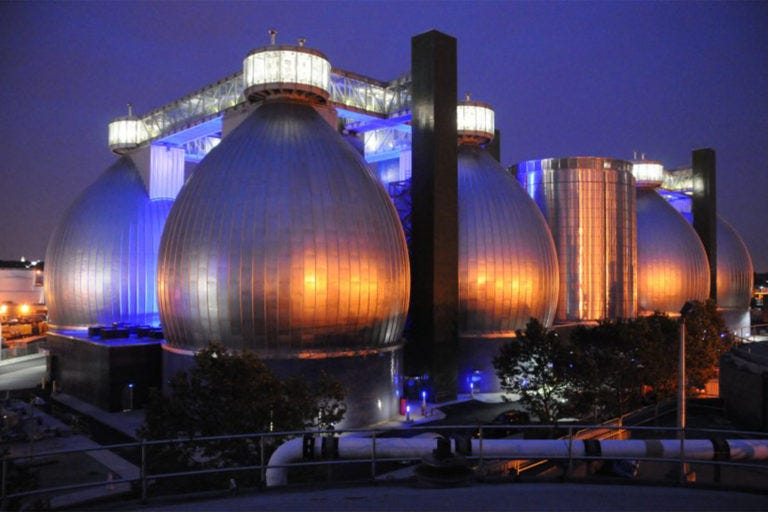Welcome to this week’s edition of AppropriateFuture, a weekly review of the convergence of technology, sustainability, innovation, and public policy.
Vertical farming popped in the news this week: In 2020, $929 million were invested in U.S. indoor-farming ventures, more than double the investments in 2019. ◦ Kim Severson in the NYT
“Hydroponic production is not growing because it produces healthier food. It’s growing because of the money. Anyone who frames this as food for the people or the environment is just lying.” Dave Chapman of the Real Organic Project
Also, three trends in vertical farming: AI, circular agriculture, and aeroponics ◦ Saloni Walimbe in Intelligent Living
Innovation
FabricNano raises $12.5M for creation of cell-free biomanufacturing — resulting in technology to enable creation of plastics without fossil-fuel. ◦ Emma Betuel in Techcrunch
Cascade Engineering has partnered with Israeli-clean-tech startup, UBQ Materials, to convert unsorted trash into mixed plastics and paper for things like pipes, bricks, floors (…ok, so far it sounds like you can make Mario Bros…), roofing, shipping pallets, and automobile parts (ok, that’s pretty cool). ◦ Paul Heney in Design World
From the “Most Likely to Confuse Archeologists of the Future” category: Mechanical Trees receives $2.5M grant from Dept. of Energy for design of three carbon farms. ◦ Arizona State Univ.
Public Policy
UNESCO’s has developed guidelines for the ethical development and deployment of Artificial Intelligence. ◦ EP&T Magazine
An update on algorithmic bias out of the UK’s Department of Digital, Culture, Media & Sport, building on the Algorithmic Roadmap from earlier this year. ◦ Gov.uk
In a recent survey 93% of European citizens consider climate change to be a serious problem, with 90% agreeing that greenhouse gas emissions should be reduced to a minimum while offsetting remaining emissions. ◦ Priyanka Shrestha in Energy Live News; and via Open Access Government
Sustainability
$43 trillion, almost half the world’s assets under management, are now committed to a net-zero emissions target which could have huge corporate implications. ◦ Financial Times, $
Brazil has no mandatory emission caps of their own, but global companies are seeking to exploit Brazil’s potential for carbon sequestration (one of the largest in the world due to the biodiversity found in rainforests). ◦ Jeffrey T. Lewis, Paulo Trevisani in the WSJ, $
While Indonesia has a similar ability to Brazil to contribute to global carbon sequestration, they struggle to balance net-zero goals with economic growth (in the form of increasing use of coal and deforestation). ◦ Vishal Agarwal, et. al. in The Jakarta Post
Southeast Asian countries must accelerate its collective investment in carbon capture technologies (averaging US$1 billion per year between 2025 and 2030) or risk missing Paris Agreement temperature targets. ◦ Jack Board in CNA Singapore

On Bioenergy:
The Poop to Power Pipeline: a great overview on converting biowaste to biogas. ◦ Marina Martinez in Mongabay
ExxonMobile has invested in algae biofuel, but are their claims of success, in a niche that may simply be too small to matter, just greenwashing? ◦ Carly Nairn in Mongabay
Since we’re on the topic of greenwashing, Greenwashing and sustainable investment: why capitalism can’t solve the climate crisis, by Helena Nicholson (marxism.com1):
All this is done in the name of clean energy. But whilst they may appear more ‘ethical’, renewables under capitalism are tainted with the same brutality and exploitation as fossil fuels.
Technology
Researchers report that Russian facial recognition companies have built tools to detect a person’s race, calling it “purpose-made for discrimination.” ◦ via Reuters in VOA
Venture Beat talks to Josh Feast of Cognito about AI in the workplace and the role of “human aware” AI. ◦ Igor Ikonnikov in Venture Beat
Big Tech crosses Public Policy in a Big Way right now - with the FTC and antitrust legislation.
The FTC is understaffed, and calls “all-hands on deck” as staffers cancel public speaking engagements. ◦ Leah Nylan, Betsy Woodruff Swann, Politico
How could the Bigs get broken up? [Christopher Mims in the WSJ, $]
“What does breaking up Big Tech really mean?” ◦ James Surowiecki in MIT Tech Review, subscribers (emphasis mine):
What this suggests is that even if public rhetoric suggests a campaign to cut Big Tech down to size, we’ll likely end up instead with a series of company-specific remedies. Amazon may have to comply with stricter regulations on Marketplace, including curbs to its power to manipulate its search results or perhaps even its ability to compete with Marketplace sellers. Apple’s monopoly on the App Store may end. Google may face stricter regulations on what it can do with data, and how its search engine’s ranking works.
These would not be trivial changes, which is why the companies can be expected to fight them. And yet in most cases, it’s hard to see that they would be transformative. In fact, in recent years these companies have already had to change various questionable practices in response to court cases or inquiries from regulators. It hasn’t kept them from missing a beat.
And Finally, The Good Link:
Not to nitpick, but shouldn’t that be a .net or .org, Karl? Anything but .com.






